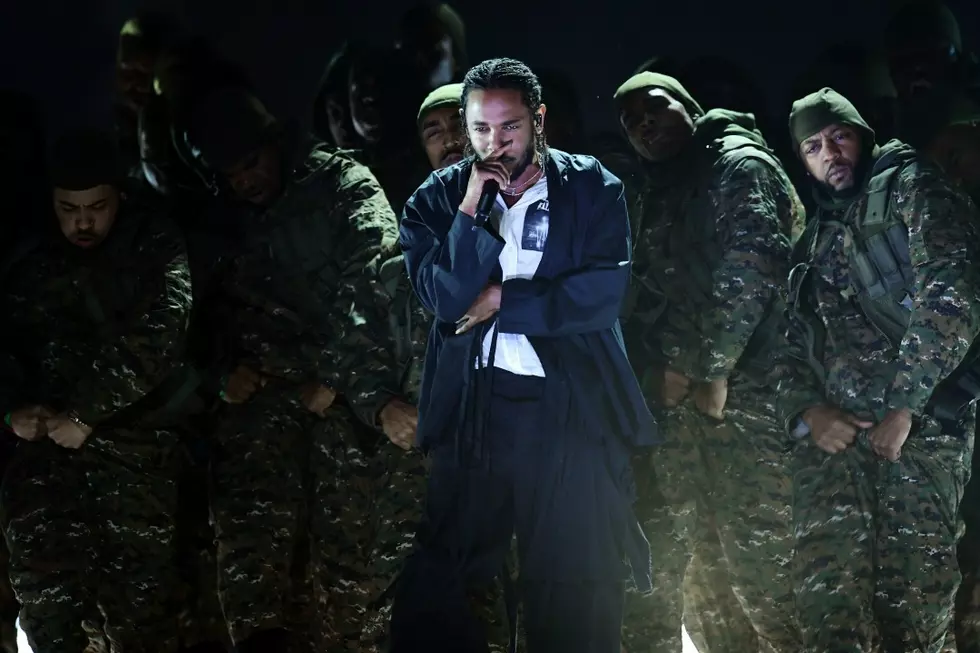
In House With Childish Gambino
When Childish Gambino speaks, he drops some droll gems. The conversation begins like a smooth ride on a never-ending highway and tends to hit those bumps that keep drivers from careening off into a ditch. He wants to make sure you're paying attention, like when he compares gangsta rap to donuts. Yes, he did that. The California-born rapper, known to most as Donald Glover, is a comedian and it's ingrained in his psyche. He can't shake it off, which led him to a career playing character Troy Barnes on NBC's comedic series 'Community.' But just as he fancies inciting laughter with his authentic brand of witticism and snark, his lyrical alter ego is moved by sharing rhymes of a similar nature with the masses.
Like Jay-Z, the 28-year-old can't leave rap alone. The game needs him, if only to get a good giggle in after he's taken jabs at himself, which he so often does in his lyrics. 'Camp,' his debut LP on Glassnote Records, debuting Nov. 15, showcases much of his wisecracks but also focuses on his personal stories, including owning the fact he's a black kid in a world that doesn't always embrace him at every turn.
Read on as Childish Gambino, who derived his moniker from a Wu-Tang name generator, reveals the reasons why he hates his voice, which Miami rap don he wishes he could sound like, the story behind his single 'Bonfire' and why he found a connection with the Pharcyde.
You rap but you're also a producer. When did you start realizing you had a knack for doing both?
When I was really young, I really wanted a Talkboy, which is a tape recorder that was made very popular in 'Home Alone 2: [Lost in New York],' and I really wanted one. I saved up and I got one. My mom bought a guitar from a family friend of mine and I would make little albums with it all the time. I was taking guitar lessons and I was learning piano at the same time. I guess about freshmen year of college as well, a friend of mine came and visited me and he had a ripped version of FruityLoops [a digital audio workstation] and I just started making beats on FruityLoops. Actually all of my remixes and my music was done exclusively through FruityLoops. I remixed all of Fiona Apple and I remixed all of Sufjan Stevens' 'Illinois' album all through FruityLoops, which sounds cumbersome but it was actually very fun. I guess like because of that, I was like, "I gotta do something with these beats." They all sounded like anime theme songs.
Watch In House With Childish Gambino
When did you lay down your first track and say to yourself, "This sounds good"?
I've never layed down a track and said, "This sounds good" [laughs]. I don't like my voice. My voice is very high. I wish I was Rick Ross. I wish I had a dope, deep voice. It took a long time for me to be OK with how high my voice was. I put out my first album, called 'The Younger I Am,' in sophomore year of college, maybe the end of freshmen year -- I can't remember -- and I had a whole opening for it and we did it for fun, and it was very emo. My voice was really high and I used to pitch it down in FruityLoops, which made me sound like a Transformer. The technology wasn't great. I guess now, I'm not necessarily comfortable, but I'm definitely like, have come to terms with my voice.
It's funny you say that. I'm going to take some lyrics from one of your songs, 'Untouchable,' from your past catalog. You say, "Childish Gambino, yeah my voice is annoying/ So I don't talk, I let the streets talk for me..." So why is it important for you to let the comedy show in your music?
I think it's important for the comedy to come through in my music just 'cause No.1, that's who I am. I'm very silly, kinda jokey person even when things are serious, like when people die. I've always been the silly person to find the irony in a situation. That's just how I handle stress. Also I think it's important, nobody wants to see this guy they know, acting or being a comedian, then be like, "I'm a rapper," and when I rap, I shoot babies in the head. No one wants that. They want the same person. That's why it never works. When people are like actors can't be musicians and musicians can't be actors, what they really mean is that they don't want to see two different people. I'm not trying to be a different person. When I rap, I rap about real stuff. I know people won't say I'm lying and full of BS. I rap about it in a silly way because that's how I am. I always try to be authentic. Even in my comedy.
%VIRTUAL-MultiGallery-139200|139196|138940|136294|134327|134573%
Your first album on Glassnote Records is 'Camp.' What's the story behind the title?
I was looking for a name for a long time that really fit. I went to camp a couple times and it's the first place you're alone as a kid. The first thing like college, where you're kinda on your own, people are watching you, but you can definitely get lost and hurt and your parents aren't there. But also the style of camp, people can say, "I'm campy." I did a lot of research and camp happens in the summer, rap has this weird affinity toward summer. The more research I did on camp, I was like, "Oh my god." The way camp is used by minorities and majorities, the way they use it to express the way things are. I was like this is more and more who I am. I've always liked outside, I've always liked trees and stuff. Camp really felt like it was the perfect name for me. It just stuck.
Describe how your track 'Bonfire,' which is on the album, came about.
'Bonfire' has probably the least of anything in it. Not anything, I mean it's a good song, honestly, but it's a bravado song. That song is like, talk about people saying I have a high voice, I sound white and stuff. And that's what that song's about. It's basically how hardcore I can get away with sounding with my voice and persona. It's about burning stuff down and starting over. And it's silliness. There's not really a lot of undertone there. There's a lot of wordplay. I was an English major; I just like to have fun with words.
When you were thinking about if you should do features on the album or not, what was the thought process behind that?
For awhile I was like, "What kind of features do I want on the album?" The more I made the album, the more I was like there just really shouldn't be any. Again, the authenticity factor is really important to me. It's really important that people see it for what it is. Is it serious? Kind of. Is it silly? Kind of. All that stuff is there. I felt like adding a bunch of features on it is just gonna make people be like, "Is he serious about this or is he trying to make a quick buck?" I felt like the more I could try to make it a straight shot and not have any features and just make it me, the better.
The album is totally me. There's not one song where I could be like, "Wiz Khalifa made that song bad." If it's bad, that's my fault. If you like it, that's my fault. Also, I felt like all my favorite albums are very cohesive. We listen to [Michael Jackson's] 'Off the Wall' constantly, like 'Thriller.' That was like Michael and Quincy [Jones]. That was it. Me and [producer] Ludwig [Goransson], we would just trade songs back and forth and talk about what they were. There was one song on there called 'Hold You Down' that wasn't gonna make it [on the album]. I was kinda teasing the idea of just what it means to be a young black kid now, in all the songs now, and I wrote this crazy, awesome verse that I really liked. I was like this songs belong on there and he didn't know, he's like, "It seems kind of typical." So we made it not typical and now it's one of my favorite songs. And that song I don't think could be on any other album.
Who has inspired you lyrically?
I really liked the Pharcyde as a kid. Their first album, they were just like rapping about, "I really like this girl and she doesn't like me. I can't keep running away from who I am." Hardcore rap, gangster rap, that's the kind of rap everybody said is rap. It's kinda like if you were like, "I want donuts." And they just gave you sprinkled donuts and that's the only thing. But there's other kind of donuts, and you're like, "No there's not" [laughs]. Gangsta rap was the most in your face and it was very powerful to see those images. It was during a time, and Chris Rock speaks about this, and this is interesting to me, [he said] the thing that made it so interesting, when those rap albums made their debut, like when N.W.A. came out and they had videos, and he was saying his cousins would have videos of girls bagging [drugs]. And people were like "Oh my god." So it made a big splash.
More From TheBoombox





![Childish Gambino Drops Violent, Captivating Video for ‘This Is America’ [WATCH]](http://townsquare.media/site/625/files/2018/05/Childish-Gambino-This-Is-America-Video.jpg?w=980&q=75)



